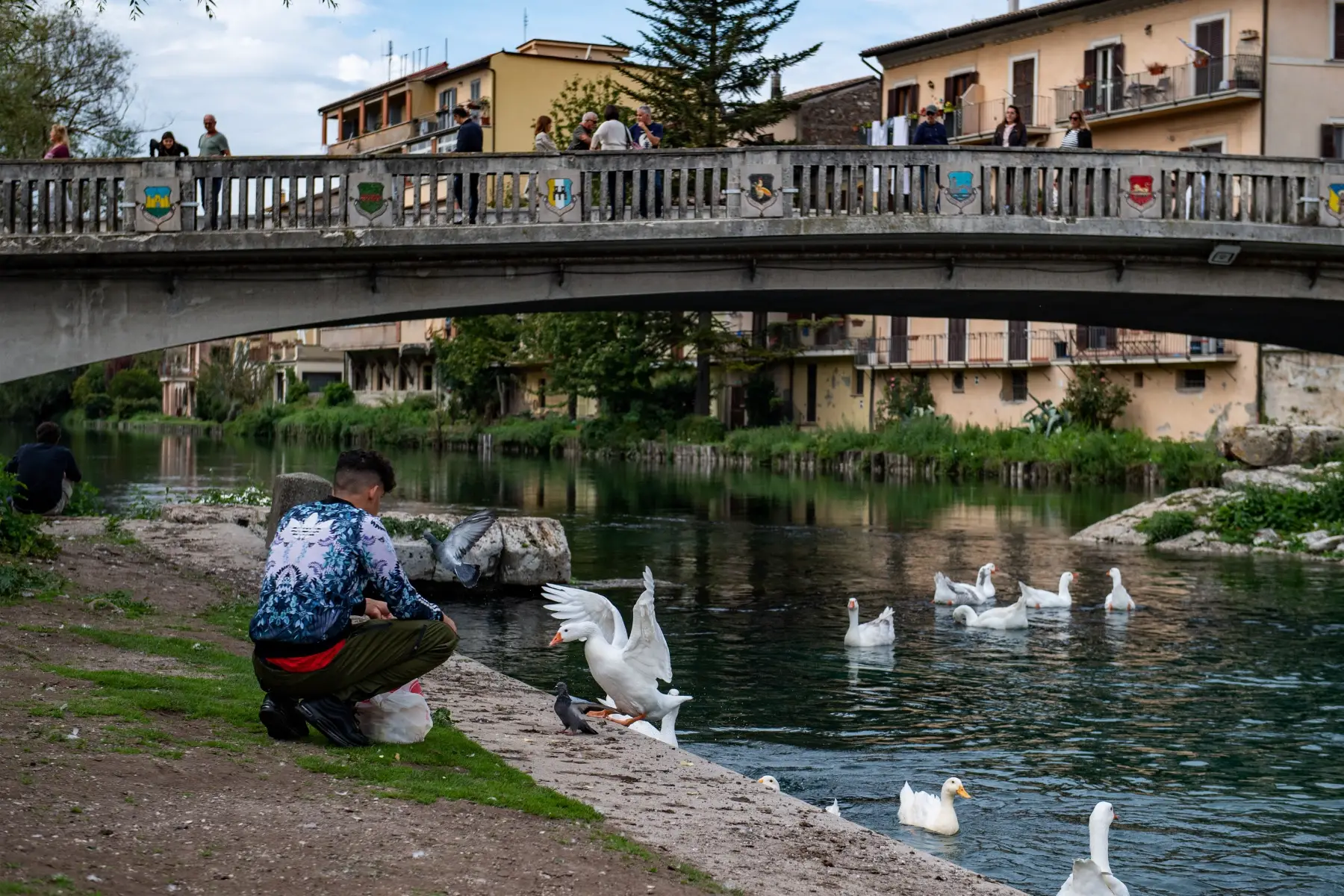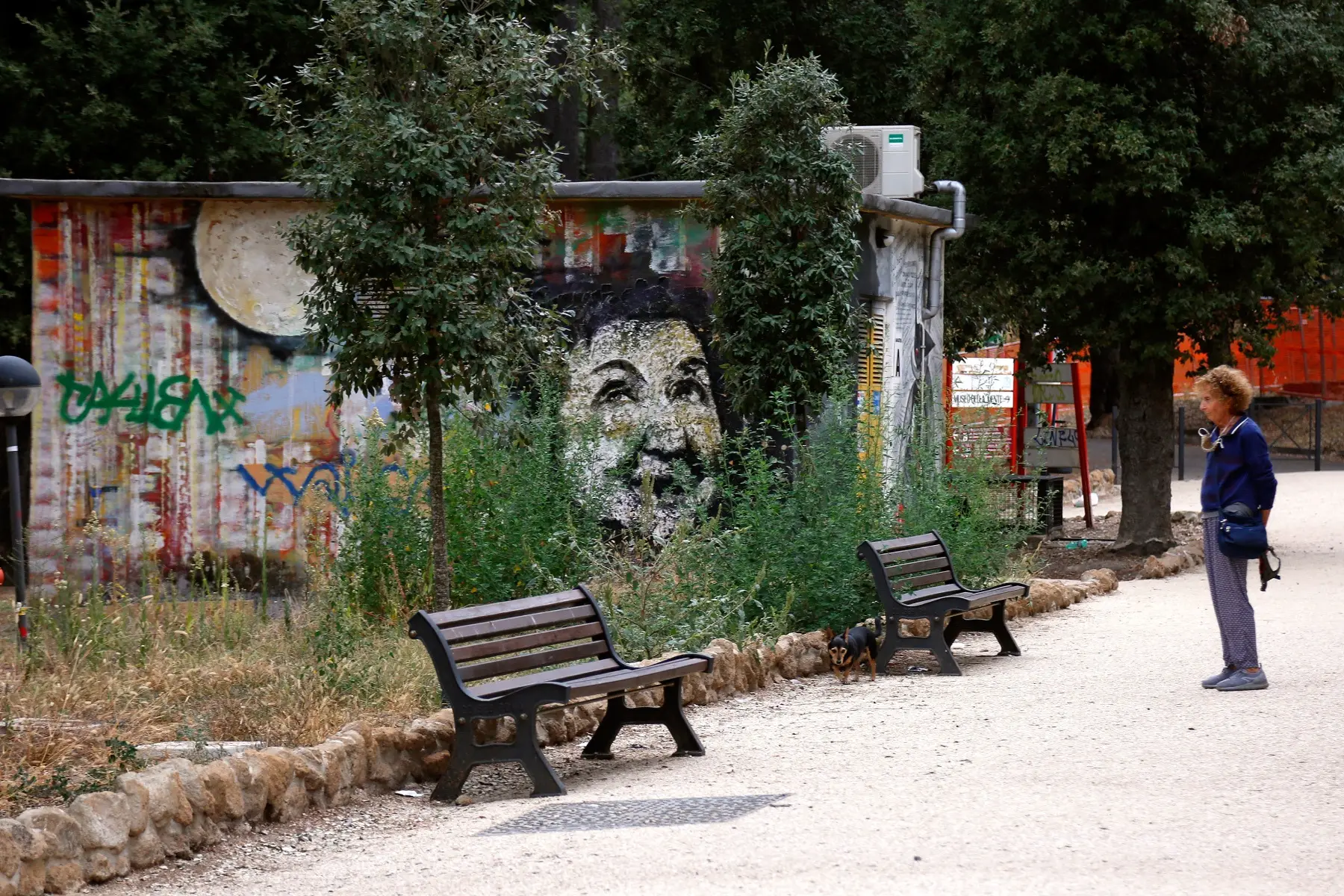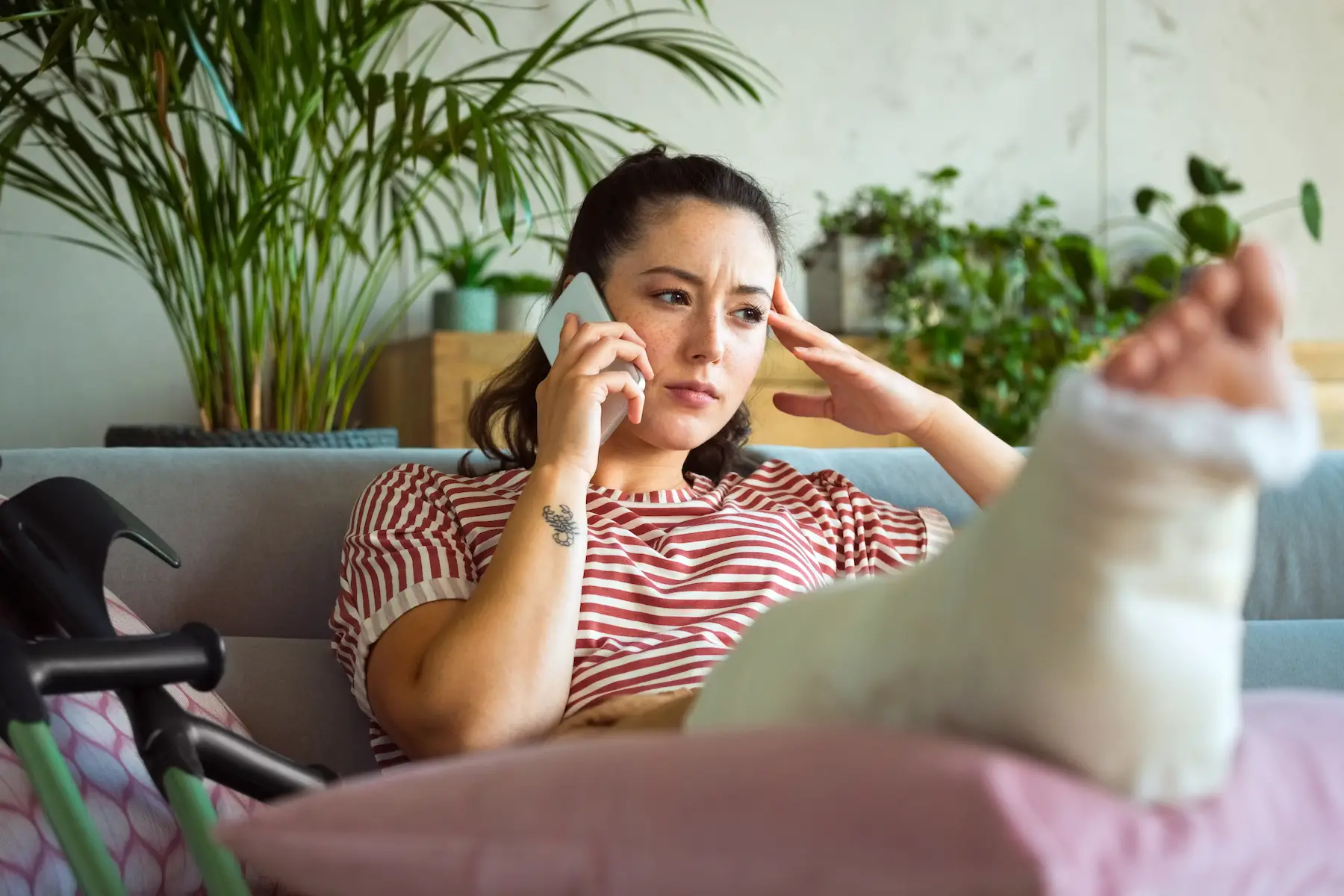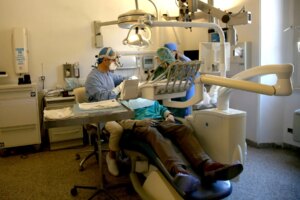Italy has one of the best healthcare systems in the world, ranking fourth for healthcare efficiency (Bloomberg, 2020) in the European Union (EU). In 2022, it also ranked fourth for life expectancy in the Organization for Economic Cooperation and Development (OECD).
Generally, Italians live three years longer (84) than the OECD average of 81. Different factors, such as higher health care spending per person, living standards, lifestyles, education, and environmental factors, can contribute to longevity.
The public system covers mental healthcare in Italy, but you can also access private services throughout the country. The Italian government has prioritized mental healthcare, especially after the COVID-19 pandemic, by funding multiple government programs and free mental health services (servizi di salute metale). The country also has a large number of non-profit associations that focus on prevention.
Learn everything you need to know about mental healthcare in Italy, including:
- Mental health in Italy
- Italian mental healthcare services
- How to access mental health services
- Insurance for mental healthcare in Italy
- Psychologists, psychiatrists, and therapists in Italy
- Italian drug and alcohol services
- Services dealing with eating disorders in Italy
- Mental healthcare for people with severe mental health problems
- Mental healthcare for children and young people
- Mental healthcare services for special groups in Italy
- Italian mental health prevention and education programs
- Emergency support and crisis lines
- Useful resources
Cigna Global
Want access to the best private medical services in Italy? Speak to the healthcare professionals at Cigna Global today and find a policy that’s right for you. Take advantage of their global network of doctors, specialists, therapists and more with coverage tailor-made for you and your family. If you’re starting a new life in Italy, get peace of mind with Cigna Global.
Mental health in Italy
A 2020 survey measuring how many people in Europe manage mental health (salute mentale) conditions reported that 24% of all participants in Italy live with at least one, especially anxiety (ansia) or depression (depressione).

While the country does have a public healthcare system, the government only allocates around 3% of healthcare funds to mental health services. Some state services are free, but others have a small fee known as a health ticket (ticket sanitari). The average cost of a private mental health visit in Italy can range between €50 and €150 per session, which insurance plans can cover, depending on your policy. Of course, public options are more affordable, but the waiting lists are longer.
Although there used to be a stigma associated with seeking mental health care, Italians are changing their views. According to a 2022 survey of over 1,000 people aged 18 to 65, around 76% of participants stated that seeking care from a psychiatrist (psichiatra) or psychologist (psicologa/psicologo) is not something to hide.
Fortunately, the Italian government has introduced more prevention campaigns, crisis lines, and financial assistance to residents seeking mental healthcare, especially after the fallout of the Covid-19 pandemic. For example, Italian residents can claim €600 worth of vouchers for therapy sessions. It is called the psychologist bonus (bonus psicologo), which you can request via the Italian social security website, Istituto Nazionale di Previdenza Sociale (INPS).
Italian mental healthcare services
The Italian Ministry of Health (Ministero della Salute) is the government department responsible for healthcare, including mental health services. Each region has a local health authority (Azienda Sanitaria Locale – ASL) overseeing all medical needs, including doctors, hospitals, and dentists. Of course, public services also include psychologists, psychiatrists, and mental health facilities for free or at least widely affordable. However, the public system is overstretched, resulting in longer wait times. Out of the 130,000 psychologists in Italy, only 5% work in the public healthcare system, according to Davide Baventore, the vice-president of Lombard Order of Psychologists (Consiglio Nazionale Ordine Psicologi).
Because of this, most Italians go private. You can find independent psychologists and psychiatrists who charge for their sessions throughout Italy. The advantage of these services is that you can see a therapist quicker.
How to access mental health services
First, to publicly access mental health services in Italy, you must register with the Italian healthcare system. Afterward, you can choose your general practitioner (GP) and receive your tessera sanitaria (health card). If you wish to access free or affordable care from a psychologist or psychiatrist, you must request a referral from your doctor or GP. However, your GP has the training to provide basic mental healthcare for less severe issues.

Next, you can call your local ASL to book an appointment. Usually, the first visit is free, but for follow-up appointments, you will need to pay a small fee or health ticket, which differs between regions.
In Italy, you can look for a public facility called consultorio. They are widely available throughout Italy and offer various services, including free mental healthcare. Again, the wait times for a public mental health service can be anything from a few weeks to months. Conversely, private psychologists and psychiatrists tend to have more availability, usually within a few days, and don’t require a GP referral.
Insurance for mental healthcare in Italy
Italy’s healthcare system runs on public and private services, including psychiatrists and psychologists. While Italy’s public system provides many services, only around 3% of healthcare funds contribute to mental health facilities and care. Because of this lack of public mental healthcare in Italy, many Italians seek help privately.
The first visit is usually free if you get an appointment through the ASL. For all of the following sessions, you will pay the health ticket fee. If you come from an EU country, your European Health Insurance Card (EHIC) can also cover the cost.
Private mental healthcare is widely available throughout Italy at a much higher fee and with shorter wait times. Fortunately, your insurance may cover part or all of the costs associated with private mental healthcare.
Insurance clients in Italy include:
Psychologists, psychiatrists, and therapists in Italy
Italy has many options to get the best care if you are looking for a therapist or psychiatrist. A psychologist or therapist in Italy is a licensed professional who can help manage mental health symptoms through talk therapy. Comparatively, a psychiatrist is a medical doctor able to treat mental health disorders through medication in addition to treatment.
Whether you book privately or publicly, you must show your identification (e.g., passport, residence card, or ID number) and health card at your appointment. Once all your details are confirmed, your mental health professional will conduct the session, which remains confidential under Italian law.
Unfortunately, Italy’s public mental healthcare system has long wait times and limited spaces. On a positive note, this is an affordable option if you go through your local ASL or seek out a consultorio. Remember that you will need a referral from your primary doctor.
However, if you can afford it or have health insurance, it pays to seek help privately for the following reasons:
- Shorter waiting lists
- A broader list of providers
- More English-speaking mental health professionals
- No referral needed
Mental healthcare fees in Italy start from €40 for a psychologist and €80 for a psychiatrist. If you wish to find an English-speaking therapist, you can check out the following:
Italian drug and alcohol services
Cannabis is the most regularly used illicit drug consumed in Europe. The highest number of regular users – around 15% of young adults (15–34) – live in Czechia, France, Italy, and Croatia. However, the number of adults smoking tobacco is comparable to the European average, with around 19%.
Around 34% of teenagers reported at least one binge-drinking session in 30 days, slightly lower than the OECD average of 37%. Less than 5% of adults reported at least one incident of heavy episodic alcohol consumption, which is significantly lower than in many other European countries (2020).

If you are seeking help for drug or alcohol addiction, your GP is your first point of contact if you wish to use the public system. Your doctor will refer you to a mental health professional or a public rehabilitation center. Depending on availability, location, and the severity of the situation, you may have to wait a few weeks or months to receive care.
Alternatively, private rehabilitation facilities are widely available throughout Italy and can be accessed without a referral, such as Centro San Nicola or San Patrignano. Some private insurance plans cover part or all the rehabilitation costs. In addition, you can contact a private psychiatrist or therapist to help you manage a drug or alcohol addiction.
Italy also has many non-profit organizations that work to help people overcome addiction. These often have local support groups such as:
- Alcolisti Anonimi: the Italian version of Alcoholics Anonymous (AA); a support group for alcohol addiction with meetings all over Italy and assistance finding treatment plans
- Narcotici Anonimi: offers assistance and support groups for those struggling with drug addiction, can also assist with rehabilitation centers and treatment plans
Helplines
The Italian government and private facilities offer assistance for drug and alcohol addiction all over the country. You can find a list of helplines – in English and Italian – on The Higher Institute of Health (Istituto Superiore di Sanità – ISS) website, specifically:
| Line | Organization | Phone |
| Alcohol Helpline (Il Telefono Verde Alcol – TVAl) | Smoking, Alcohol and Drugs Observatory (OFAD) (dell’Osservatorio Fumo, Alcol e Droga – OssFAD) | 800 632 000 |
| Drug Helpline (TVD) | National Addiction and Doping Center (Centro nazionale Dipendenze e doping) | 800 186 070 |
Services dealing with eating disorders in Italy
You can access various government healthcare organizations, non-profit associations, and private facilities for support if you have an eating disorder. For example, the National Centre for Addiction and Doping and the Ministry of Health have a registry – Piattaforma Disturbi Alimentari – detailing all services that assist with eating disorders.
The national helpline for anorexia, bulimia, and binge eating disorders is 800 180 969.
Furthermore, you can reach out to the Associazione Bulimia e Anoressia (ABA). The association has support groups that help individuals to seek treatment.
You can also find psychologists, psychiatrists, and treatment facilities specialized in eating disorders throughout Italy. Of course, if you access these public services via your local hospital, ASL, or GP, you won’t be charged or only pay a small fee.
Otherwise, private options are available at a cost but with shorter wait times. Check with your insurance provider, as they may cover all or part of the treatment.
Mental healthcare for people with severe mental health problems
The Department of Mental Health (Dipartimento di salute mentale – DSM)) works with the Ministry of Health to provide mental health services nationally and locally.
The DSM oversees local mental health centers (Centro di Salute Mentale – CSM), such as day hospitals and residential facilities supporting people with severe mental health problems. The CSM also works with outpatients to support their recovery and reintegration into daily life. For example, care workers assist patients in creating a healthy routine and finding employment.

Italy has been a European pioneer in encouraging community mental healthcare while deinstitutionalizing (i.e., fewer psychiatric hospitals) mental health services. It shows significant advantages in societal attitudes and overall mental health (e.g., reduction in suicide rates and unplanned readmissions) rates, but regional discrepancies exist. For instance, you can access more services in northern Italy than in the southern regions. Still, these regional and innovative models of care may be at risk as right-wing parties propose dismantling and privatizing these community-based facilities.
There is no precise data about the prevalence of severe mental health problems, including schizophrenia, psychosis, bipolar, affective, or personality disorders. However, cases of anxiety and depression continue to increase throughout Italy, with 6.6% of adults struggling with depression and 17% with anxiety. According to the Eurofund’s Living, working, and Covid-19 survey (2022), around 60% of adults are at risk of developing depression (post-pandemic), a slight increase from 2021.
You can contact your GP, local CSM, or ASL to seek public treatment if you are struggling with severe mental health problems. Of course, therapists, psychiatrists, and mental health facilities are also available privately at a cost.
Helplines
You can also call 118 for a medical emergency or seek support via these helplines:
| Helpline | Organization | Number |
| Psychological support (Also Deaf access) | Ministry of Health | 800 833 833 |
| General psychiatric support | Progetto Itaca | 800 274 274 022 900 7166 (from mobile) |
| Support and contact for lonely older people | Senior Italia Federanziani | 800 991 414 |
Mental healthcare for children and young people
According to Unicef’s On my mind report (2020), 16.6% of young people between the ages of 10 and 19 struggle with mental health problems.
Children in Italy can use most public healthcare services for free or at low cost, including pediatric visits and mental healthcare. However, minors under 18 need parental consent to access mental health services.

If you are worried about your child’s mental health, your first point of contact will be their doctor. They would assess the situation and, if necessary, refer your child to a pediatric psychologist, psychiatrist, or mental health facility.
You can also contact your local consultorio familiare, a public facility that offers free mental health assistance to families. Families can sometimes request a psychologist at school, if one is available.
Helplines
Helplines specializing in children’s mental health can be a good resource for support and more information on the most appropriate services: These include:
| Helpline | Number |
| In case of emergency | 114 |
| Blue Telephone (Telefono Azzurro) – child and youth support and protection (includes chat service) | 196 96 |
| Serafico – support for parents of children with severe disabilities | 800 090 122 |
| Telefono Blu per l’autismo (Autism support service) | 800 031 819 |
Mental healthcare services for special groups in Italy
Italy has multiple non-profit organizations and government programs that provide support to particular groups in Italy free of charge. The Italian Ministry of Health also funds programs and crisis lines for women who are victims of domestic violence, migrants, and people with disabilities.
Helplines
Some resources available for special groups in Italy are:
| Group | Type of support | Organizations | Helplines |
| Women | Support for survivors of domestic violence | Associazione Frida | 1522 |
| Migrants and refugees | Mental health services, support groups, and assistance | Crinali Cooperativa | 02 843 5598 |
| People with disabilities | Mental healthcare services and other support groups | Database of organizations | See database |
| People with disabilities | Report discrimination | Association for Disabled Citizens (L’Associazione Invalidi Civili – ANMIC) | 800 572 775 |
Your GP or local ASL can also assist you with specific mental healthcare services in the public system.
Italian mental health prevention and education programs
In recent years, the ISS has focused on mental health awareness and prevention through educational campaigns and funding (e.g., mental health helplines). Some examples of mental health initiatives include the Bonus Psicologo, a €600 voucher for low-income families to access public mental health services.
Italy’s many non-profit organizations also help raise awareness. For example, the Unione Nazionale delle Associazioni per la Salute Mentale (UNASAM) or the National Union of Mental Health Associations helps implement mental health prevention programs nationally.
Emergency support and crisis lines
To recap, you can call most helplines toll-free in Italy.
In the case of an emergency, call 112, or for urgent medical care, 118. TelefonoAmicoItalia runs the suicide prevention hotline on 02 2327 2327
The main crisis lines for people struggling with addiction are:
| Service | Number |
| Support with drug addiction | 800 186 070 |
| Support with alcohol addiction | 800 833 833 |
| For issues with smoking | 800 554 088 |
| Anti-Doping | 800 896 970 |
| Support for gambling addiction | 800 558 822 |
The Italian government also set up crisis lines for people with depression, eating disorders, or other mental health problems, including:
| Service | Number |
| Crisis line for eating disorders | 800 180 969 |
| Helpline for psychological support | 800 833 833 |
| Psychiatric support for people with mental health disorders or their family | 800 274 274 |
| Helpline for victims of violence and stalking | 1522 |
| Crisis line for older adults | 800 995 988 |
| Helpline for children and adolescents with mental health, family, or school related problems | 196 96 |
| Support for families of children with disabilities | 800 090 122 |
Useful resources
- Salute – the Italian Ministry of Health website
- Istituto Superiore di Sanità (ISS) – the technical-scientific body of the Italian National Health Service, performs research and training for public health
- Mio Dottore – database of mental health professionals
- DoctorsinItaly – directory for English-speaking psychiatrists or psychologists






